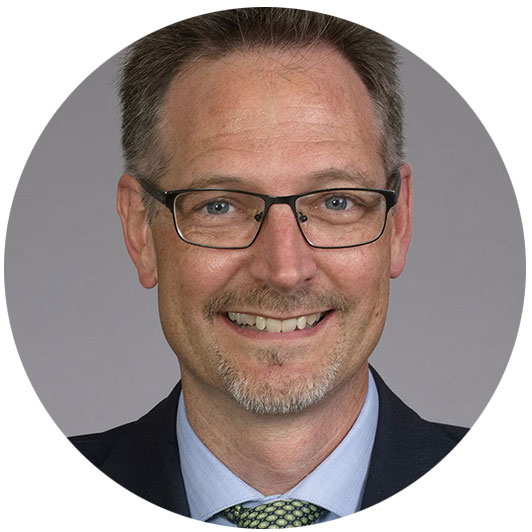
Lay Bible Institute
The Lay Bible Institute, offered three times a year by Seminary faculty members, is an ongoing study of the Bible and how it relates to today’s life and events.
Saturday, Aug. 8, 2026
‘Whose Child is THIS?’ Spiritual Formation Through Worship and Music
Dr. Samuel Eatherton

From the moment we are born, we are being formed spiritually. As Christians, we want our children to be formed in the likeness of Christ, to be imitators of Him. Truth be told, there are a host of godless and attractive agencies that strive to possess the hearts and minds of our children. What are we to do?
This workshop will explore how music, coupled with the Word of God, has engaged and formed hearts and minds for good since the beginning of time and throughout the history of the Christian church — and it continues to shape Christians today. So, bring your Bible and your Lutheran Service Book and prepare to sing and pray and learn how God works through His Word in song!
Saturday, Oct. 3, 2026
How To Raise Children to Remain Christians for Life? – Essential Guidance for Family Discipleship
10 a.m.–3 p.m.
Sieck Hall 202
Registration: $30 ($20 boxed lunch)
Registration deadline: Sept. 21, 2026
Dr. W. Mart Thompson and Cheryl Thompson

In this workshop, Dr. Mart Thompson and his wife, Cheryl, combine Gospel-centered biblical teaching with current research and proven strategies to help parents raise their children in the Christian faith. Their approach equips busy families with practical spiritual practices and habits that nurture lifelong discipleship, even in the face of today’s cultural challenges. In this workshop, they will share simple, natural ways parents can disciple their children at home, along with how churches can support them in this mission. Rooted in biblical wisdom and the transformative power of the Gospel, this session will encourage and empower parents to raise children who follow Christ for life — no more passive hoping. Let’s be intentional about raising disciples!
Saturday, Feb. 6, 2027
The Book of Esther—Hated, Loved, Ignored, Celebrated, and More

10 a.m.–3 p.m.
Sieck Hall 202
Registration: $30 ($20 boxed lunch)
Registration deadline: Jan. 25, 2027
Dr. Philip Penhallegon

Luther said he hated it. The Church barely uses it. Individuals seem to love it. It’s raucously read aloud in the synagogue each year at Purim. God’s name is never mentioned, and the characters don’t seem very pious. The Greek version has 107 more verses than the Hebrew version that is translated in our English bibles. What gives? Come explore all of this and more.
Additional Continuing Education Opportunities
Faith and Writing Workshop
Concordia Seminary’s “Faith and Writing” workshop explores various forms of creative writing — starting a blog, creating a sermon or devotion, “traditional” forms of creative writing (story, nonfiction, drama, poetry) — and everything in between.
Multiethnic Symposium
The Seminary’s annual Multiethnic Symposium brings together Lutherans and mission leaders of various ethnicities from across the country for workshops, discussions and worship.
Pre-Lenten Workshop
The Pre-Lenten Workshop includes sermon manuscripts, textual notes, orders of service for midweek services and also suggestions for the Sundays of Lent to help pastors in developing their own worship resources.
Theological Symposium
Parish pastors, LCMS district and Synod officials, Seminary and Concordia University students and faculty, and interested laypersons attend each year to delve into some of the most pressing issues of our time. One CEU is available for attending the Symposium.
Workshop Series
Hosted by congregations across the country May through August, and led by Seminary faculty, these workshops offer an opportunity to delve deeply into topics ranging from the teachings of Martin Luther to pastoral tools, such as preaching, responding to conflict and teaching confirmation.

